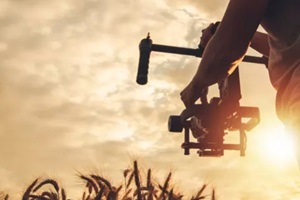 To succeed in film production, documentary filmmakers—both novice and experienced—need a clear understanding of insurance basics and how they apply them to their projects. Documentary production insurance is an overarching umbrella describing a wide range of policies filmmakers can use to secure their projects against unforeseen risks and losses.
To succeed in film production, documentary filmmakers—both novice and experienced—need a clear understanding of insurance basics and how they apply them to their projects. Documentary production insurance is an overarching umbrella describing a wide range of policies filmmakers can use to secure their projects against unforeseen risks and losses.
Explore the essentials of insurance for documentary production to achieve a clear understanding of insurance policies that can safeguard your documentary projects.
Understanding the Basics of Insurance for Documentary Production
Documentaries are a type of film, meaning they can utilize many of the same kinds of coverage that other film niches rely on. At a baseline, coverage should include protection for equipment, staff, talent, and potential errors and omissions. Many teams will also add coverage for unforeseen cancellations and business interruption should a shoot go awry.
Types of Coverage and Their Importance
Each documentary is unique, and its insurance coverages should reflect the specific risks it faces. However, in general, most documentary production insurance should include:
- General Liability: This type of insurance covers third parties and their property should they be harmed or damaged by the production or while on set.
- Equipment: This insurance can pay for repairs or replacements to essential filming equipment.
- Errors & Omissions: If a documentary accidentally utilizes copyrighted materials or makes other mistakes, the financial repercussions can be handled by E&O insurance.
- Business Interruption: This insurance policy compensates for lost funds if a shoot is canceled or the production schedule is interrupted.
Navigating the Insurance Process: A Step-by-Step Guide
Securing documentary insurance requires that producers first identify their needs. What are the production risks? What is the budget allocated for insurance? Once these questions are answered, partner with an insurance provider with experience in the film industry to ensure you receive tailored guidance and insurance packages that address your unique needs for a documentary.
At the policy selection stage, review the monthly premium cost and what is included and excluded in the policy. Adjusting deductibles, coverage limits, and riders can change the premium amount, making procedures more affordable or comprehensive in their protection, depending on your needs.
Assessing Your Documentary’s Insurance Needs
Identifying your documentary’s risks is the first step to securing insurance—but how do you tackle this process? Consider some of the following questions to get you started:
 Does the film require extensive use of rentals?
Does the film require extensive use of rentals?- Will the film be shot on an owned property or third-party sets?
- What equipment is required for the shoot?
- To what extent will the public be exposed to the shoot, props, and talent?
- How long will production last?
These questions help a studio identify where issues may arise with how people, equipment, and timelines interact with the many moving elements of the production.
Common Challenges and Solutions in Documentary Insurance
One of the most frequent issues with securing insurance for documentary production is dealing with standard exclusions. For instance, the cast injury may not be covered while performing certain filming stunts, such as underwater filming.
Business interruption or equipment insurance may not cover specific perils, such as intentional negligence and misuse, or acts of God, such as flooding. To best address these challenges, carefully review the insurance policy and discuss adding riders to bridge gaps in coverage for areas that are lacking.
When filing a claim, include as much evidence as possible. The best documentary insurers will offer an online portal where claims can be managed in real-time, allowing you to upload documentation quickly and manage conversations about your assertion using a streamlined communication system.
You will need to wait for the information to be reviewed, but you can check the status of your claim regularly to see if more documentation is required.
Case Studies: Insurance in Action for Documentaries
 Many documentaries have faced issues that necessitate the use of their insurance coverage. One such instance occurred at Abbott Elementary, the mockumentary set in a Philadelphia school. Following an industry strike that delayed the production, crewmembers contended with stolen equipment that needed to be replaced.
Many documentaries have faced issues that necessitate the use of their insurance coverage. One such instance occurred at Abbott Elementary, the mockumentary set in a Philadelphia school. Following an industry strike that delayed the production, crewmembers contended with stolen equipment that needed to be replaced.
Business interruption insurance could front the funds to cover the shooting delay in this production’s case. In contrast, equipment insurance would ensure the stolen cameras and machines could be replaced without any out-of-pocket expense.
Ready to Insure Your Documentary? Let MFE Insurance Help
Documentary producers need to understand the importance of acquiring the right insurance for their production. The upfront insurance cost parallels the potential losses of delayed shoots, damaged equipment, injured talent, and more.
The professionals at MFE Insurance have worked with many documentaries to identify their areas of greatest need and secure them with insurance coverage. Reach out to MFE Insurance for expert guidance and tailored insurance solutions.
